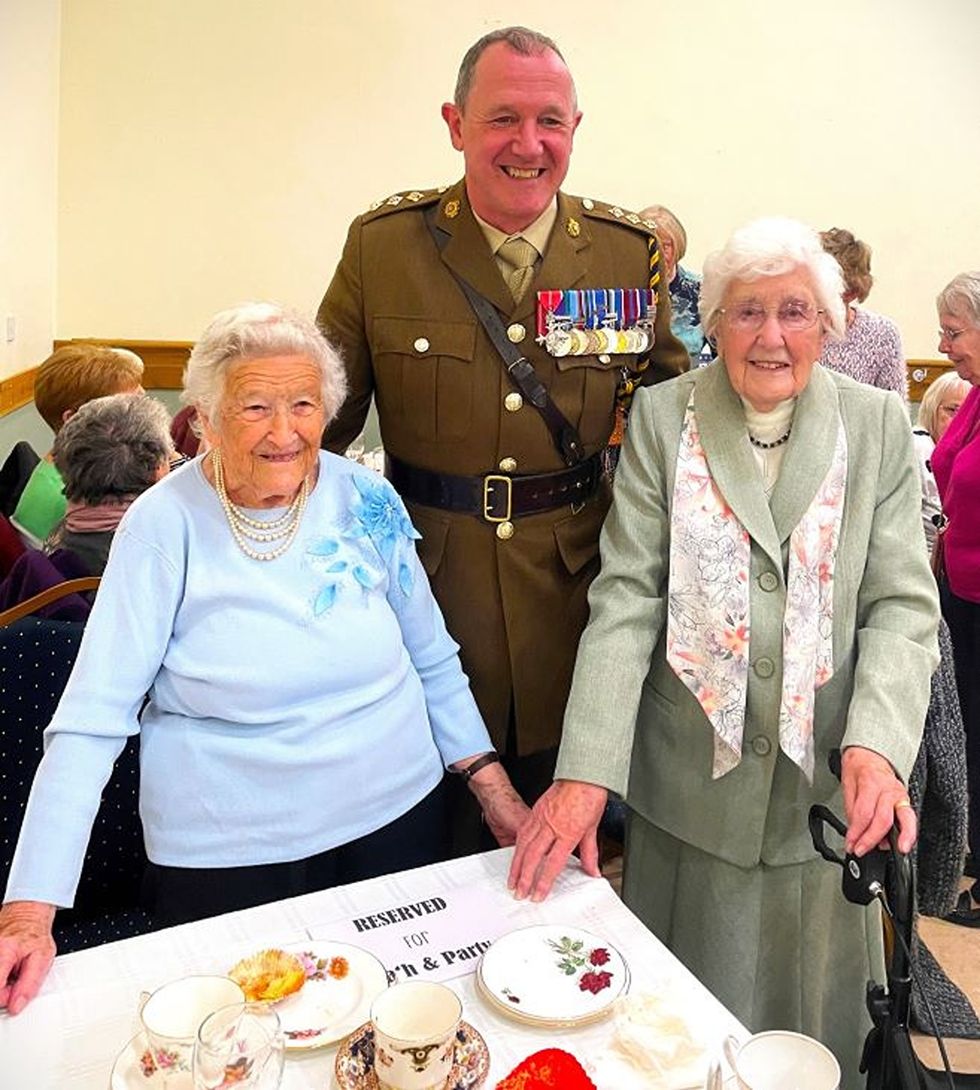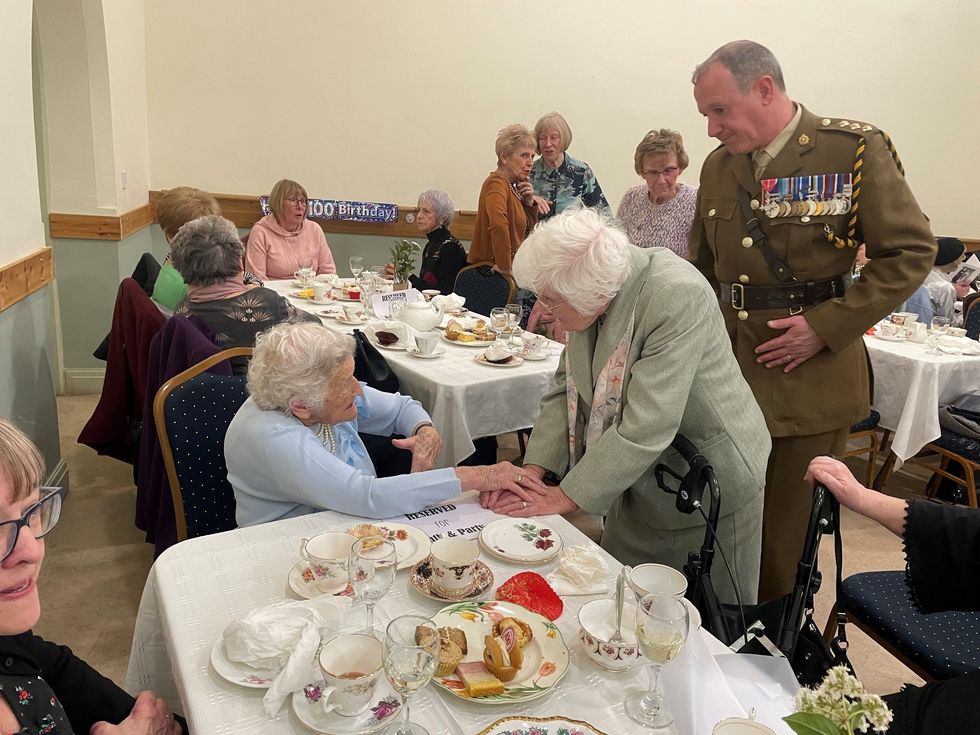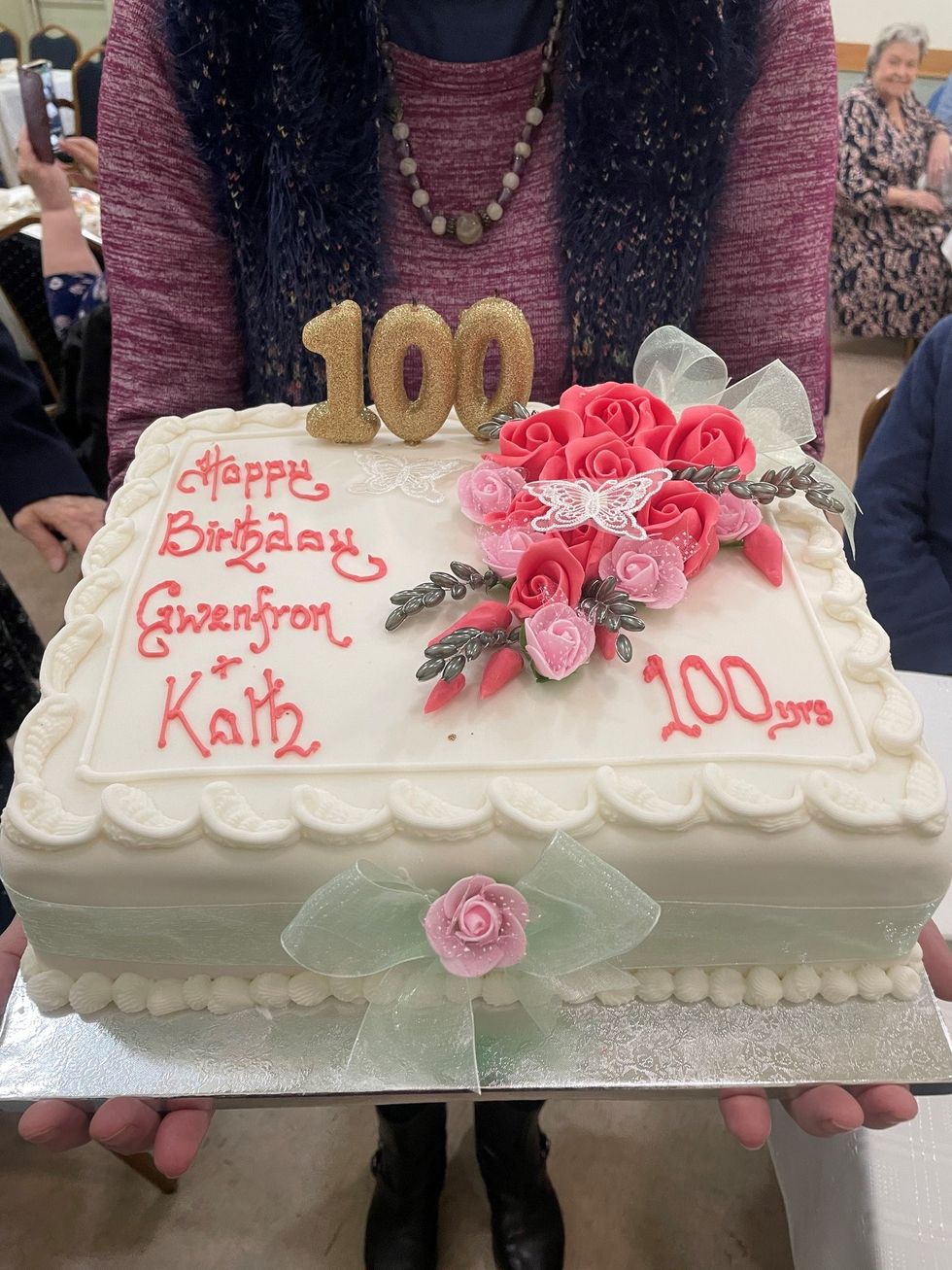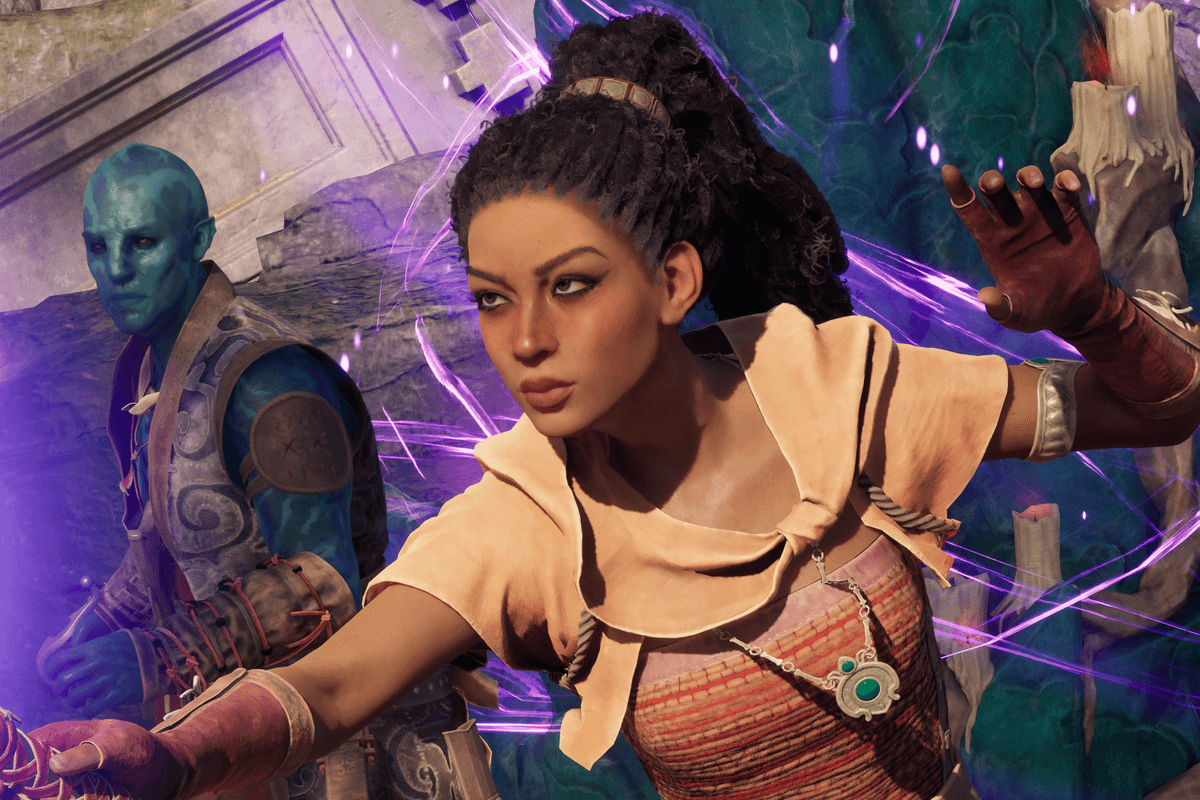Claire Hayhurst
Mar 14, 2024

Kath Morris (left) and Gwenfron Picken pictured with Captain Huw Williams (Neath Port Talbot County Borough Council/PA)
Two women who worked as codebreakers at Bletchley Park during the Second World War have met for the first time at a joint celebration of their 100th birthdays.
Gwenfron Picken and Kath Morris both left their homes in Port Talbot, south Wales, at about the same time to work at the secretive huts and blocks of the Buckinghamshire mansion.
The women, who were born a week apart in 1924, did not know each other until they met at a joint birthday party at St Theodore’s Parish Hall in Port Talbot on March 7.

They were greeted at the hall by Captain Huw Williams, representing the Lord Lieutenant of West Glamorgan’s office.
During the party, Mrs Picken and Mrs Morris were presented with a joint birthday cake, with “Happy birthday Gwenfron and Kath, 100 years” iced onto it, along with gold candles shaped in the number 100 to blow out.
Finola Pickwell, the regional armed forces liaison officer for the area, said: “It was delightful the ladies could meet at last after both working during wartime at Bletchley Park.
“Those at Bletchley Park played a key role in shortening World War II by providing the allies with a flood of high-grade military intelligence which gave them the edge on land, sea and in the air.”

Mrs Picken, who lives in Port Talbot, turned 100 on February 29. Mrs Morris, who lives in a care home in Neath, had her 100th birthday on March 7.
Bletchley Park was where British codebreakers, including Alan Turing, used early forms of computer intelligence – cryptanalytical machines called Bombes – to break the Enigma code used by the Nazis to encrypt messages, changing the course of the war and saving millions of lives in the process.
Their work enabled British intelligence to move more quickly and act upon the information the Bletchley team gave them, contributing to a number of key military victories during the war.
It also sparked the industrialisation of codebreaking and helped pave the way for the first forms of the computers used today.
Top 100
The Conversation (0)













